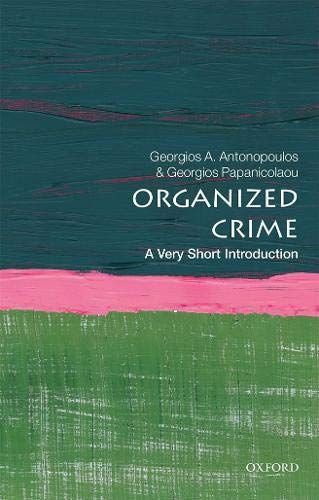
Organised Crime: a Very Short Introduction
For many people around the world, instances of what is described as organised crime may be part of their everyday experience; in their neighbourhoods, their streets, and the places they work and live. Policymakers, law enforcement, and the media rarely fail to bring up the issue when discussing the nature and seriousness of contemporary criminal threats, and the appropriate responses towards them. Many more people are familiar with the notion of organised crime, as the film and TV industry regularly draw on fictional and real figures and situations. Organised crime feels like a tangible, inescapable issue in today's world. In this Very Short introduction, Georgios A. Antonopoulos and Georgios Papanicolaou uncover the reality of organised crime in our world today. Shining a light on the people involved in organised crime, Antonopoulos and Papanicolaou question whether the term 'organised' is used to evoke the image, the operations, and power of a legitimate organisation, such as a corporation. Discussing whether there are particular crimes that the label 'organised crime' applies to, or if any crime can be organised, they also consider what happens when organised crime extends beyond borders. Using examples from across the globe, they analyse the different cultural traditions of organised crime, such as the Mafia, Yakuza, and Triads, and also the nature of organised crime, from arms trafficking and drug dealing to extortion. Finally they explore the methods and agencies in place to control and prevent organised crime. ABOUT THE SERIES: The Very Short Introductions series from Oxford University Press contains hundreds of titles in almost every subject area. These pocket-sized books are the perfect way to get ahead in a new subject quickly. Our expert authors combine facts, analysis, perspective, new ideas, and enthusiasm to make interesting and challenging topics highly readable.